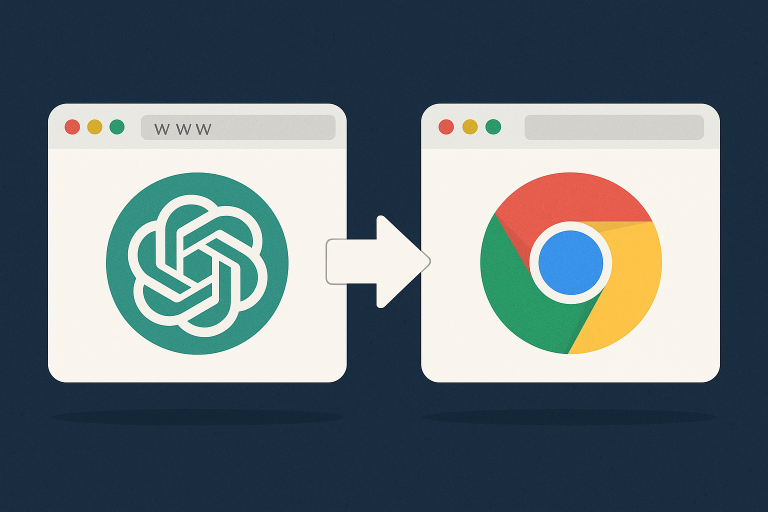OpenAI has launched ChatGPT Atlas, an artificial intelligence-powered browser designed to transform how people interact online.
The company, best known for its chatbot ChatGPT, unveiled Atlas on 21 October 2025, marking its first major expansion beyond conversational AI.
With over 800 million weekly ChatGPT users, OpenAI is using that momentum to create a browser that integrates the chatbot directly into users’ online experiences.
The new tool aims to challenge Google Chrome’s dominance by offering summarisation, automation, and memory features within a single interface.
OpenAI introduces AI-powered browser features
ChatGPT Atlas allows users to open a sidebar within any window to summarise content, compare products, or analyse data from websites.
A new feature, “Browser Memories,” enables the AI to remember the pages a user visits, allowing for contextual responses in later sessions.
This function is optional, and users must choose to activate it.
For paid subscribers on Plus, Pro, and Business plans, OpenAI has introduced “Agent Mode,” an advanced feature that allows ChatGPT to interact with websites on a user’s behalf.
In this mode, the chatbot can perform tasks such as filling forms, navigating sites, or even completing multi-step actions like researching and purchasing travel items.
In demonstrations, developers showed how the AI could locate a recipe online and automatically buy the required ingredients via Instacart, completing the task in minutes.
Growing competition in the browser market
Atlas enters a highly competitive space long dominated by Google Chrome, which held 71.9% of the global browser market in September 2025, according to StatCounter.
Shares of Alphabet Inc., Chrome’s parent company, fell 1.8% after OpenAI’s announcement.
By integrating chat directly into the browser, OpenAI hopes to redefine how users search and interact online.
Unlike traditional browsers that rely on search bars and keyword-based queries, Atlas centres around a conversational approach.
Users can ask ChatGPT to perform searches, summarise content, or provide comparisons—all without leaving the page.
Industry analysts say this integration may signal OpenAI’s entry into the online advertising market.
If Atlas eventually incorporates advertising, it could divert a significant share of digital ad revenue away from Google, which currently controls around 90% of the global search advertising market.
Rollout plans across platforms
At launch, ChatGPT Atlas is available globally for Apple macOS users.
OpenAI has confirmed that versions for Windows, iOS, and Android will follow soon.
The browser supports essential tools such as tabs, bookmarks, and importing data from other browsers, allowing users to transition easily from Chrome, Safari, or Firefox.
Atlas is accessible to users across OpenAI’s Free, Plus, Pro, and Go plans.
Business and education users can join the beta programme if administrators enable it.
The company says the browser will continue to evolve with feedback from early users and that broader availability is expected in the coming months.
Privacy, data control, and implications for the web
OpenAI has emphasised that ChatGPT Atlas prioritises user privacy.
Browsing data will not be used to train AI models unless users explicitly opt in through the Browser Memories setting.
This design gives individuals control over what information is stored and shared.
However, Atlas also introduces challenges for publishers and advertisers.
As the AI summarises and analyses webpages directly within the browser, users may not need to visit original sites to consume information.
Experts note this could reduce website traffic and affect revenue models based on clicks and ad impressions.
The automation capabilities in Agent Mode also raise questions about data security and regulatory oversight, as the AI takes on more autonomous decision-making roles.
OpenAI’s move into the browser market reflects a broader trend toward AI-driven search and automation.
With competitors such as Google Gemini, Brave’s Neon, and Perplexity’s Comet already in the space, the launch of Atlas marks a new chapter in the evolution of how people browse, search, and interact online.
The post OpenAI launches ChatGPT Atlas browser to rival Google Chrome appeared first on Invezz

